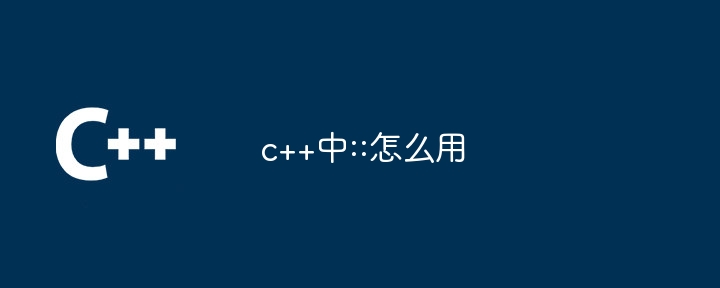Home >Backend Development >C++ >In c++::how to use
In c++::how to use
- 下次还敢Original
- 2024-04-26 15:57:141122browse
In C, the :: operator is used to access static members or global variables of a class. It lets you access static members even without a class instance, and global variables even without a source file.

:: Usage in C
:: is a operator, called the domain resolution operator. It is used to access static members and global variables of a class.
Accessing static members of a class
Static members belong to the class rather than the class instance. You can use the :: operator to access static members of a class even if there is no instance of the class.
<code class="cpp">class MyClass {
public:
static int numInstances;
};
int main() {
// 访问静态成员
cout << MyClass::numInstances << endl;
return 0;
}</code>
Accessing global variables
Global variables are available in all code files. You can use the :: operator to access global variables even if there is no source file in which they are defined.
<code class="cpp">// 定义全局变量
int globalVar = 10;
// 在另一个文件中访问全局变量
int main() {
cout << ::globalVar << endl;
return 0;
}</code>
Note:
- :: must follow the class name or variable name, and there must be no spaces in the middle.
- In the same file, when accessing static members or global variables, you usually do not need to use the :: operator.
- You need to use the :: operator only when you need to access private static members or global variables in different files or from code.
The above is the detailed content of In c++::how to use. For more information, please follow other related articles on the PHP Chinese website!

